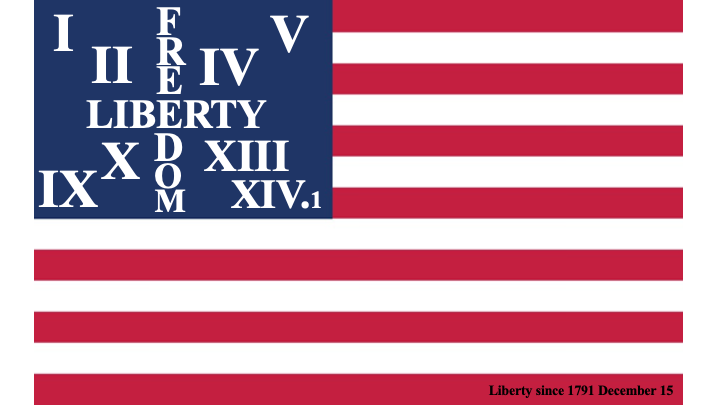Liberty for All
"Everything that is really great and inspiring is created by the
individual who can labor in freedom" --Albert Einstein.
Humanity thrives with liberty and freedom. In theory, citizens of
United States are guaranteed freedoms through the Constitution.
However, government in general tends to infringe on individual
liberties in the quest for power and societal control. The individual
rights that most of us take for granted require the due diligence of
the citizenry to maintain.
Most Americans are familiar with the 1st, 2nd, 4th, and 5th Amendments
which protect our rights of free speech (1st), religion (1st), ability
to assemble (1st), guns (2nd), rights against unreasonable searches
and seizures (4th), rights for life (5th), liberty (5th), and property
(5th). A less appreciated, but equally important amendment is the
9th. The Ninth Amendment of the Bill of Rights says that rights not
explicitly spelled out in the constitution are retained by the people.
Although most constitution "experts" over the last 200 years have not
adopted the literal interpretation of this amendment, the courts have
begun to embrace the importance of the 9th Amendment for maintaining
the libertarian principles underlying the founding of our Nation.
Originally, the Bill of Rights were interpreted as protection against
Federal powers, but after the 14th Amendment (post-Civil War), basic
liberties were protected from state governments as well. Even though
many judges still rely on the Due Process Clause of the 5th and 14th
amendments to argue for individual liberties, the 9th by itself
provides us with a broad range of basic liberties that conservatives,
liberals, and progressives would endorse today. Every freedom loving
person should embrace the literal interpretation of the 9th (see
Barnett, R. E. 2006, Texas Law Review, 85, 1). In many ways, the fate
of the Nation hinges on how the Supreme Court will interpret the 9th
Amendment in the coming decades with regard to Big Tech, government
over-reach, and the Surveillance State. Assuming reasonable minds
prevail, the 9th will become more impactful over time and will provide
liberties not yet imagined today that future generations will
enjoy.
Constitutional Law is fairly simple to understand when one properly
interprets the phrase "the people" as meaning individual people (not
the "collective" or state or federal legislatures). Unfortunately,
many Law Professors tend to teach students how to subvert the
Constitution for some current popular cause or to increase the powers
of the State by infringing on individual freedom.
"Liberty is not collective, it is personal. All liberty is individual
liberty." --Calvin Coolidge
"Rightful liberty is unobstructed action according to our will within
limits drawn around us by the equal rights of others." --Thomas Jefferson
"Democracy is 51% of the people taking away the rights of the other
49%." --Thomas Jefferson
Basically, the rights of individuals are absolute as long they do not
infringe on the equal rights of others. The Constitution was written
to protect the people (individuals) from government. The United
States of America is not a democracy, where the wishes of the majority
can infringe on the rights of individuals, the United States of America is a
constitutional republic.
Additional quotes of wisdom (new quote with each re-load [random out of 14]):
BILL of RIGHTS --- Liberty since 1791 December 15

Founding Documents
The Surveillance State
Disclaimer: The views presented here represent the opinions of David Theodore Frayer, and any and all affiliates are not responsible for the content in any way.
© 2021 David Theodore Frayer All Rights Reserved.
